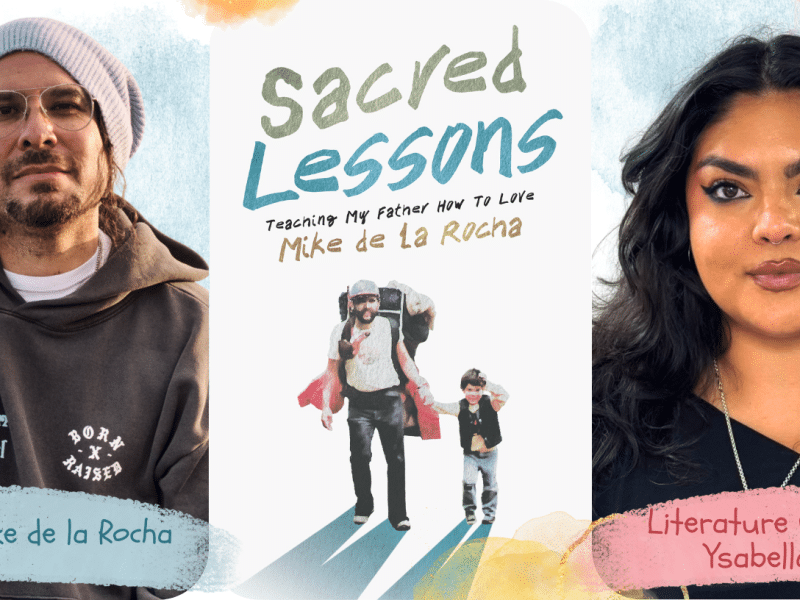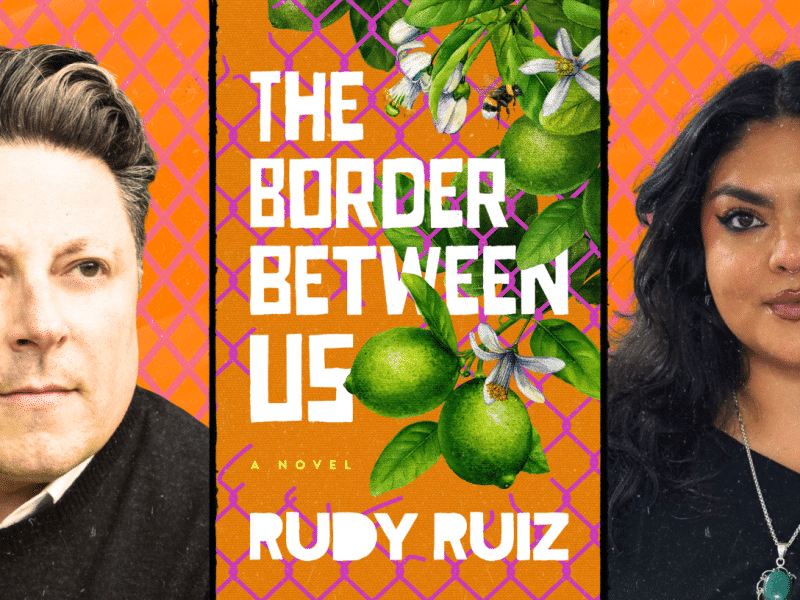Carmen Rita Wong’s Critically Acclaimed “Why Didn’t You Tell Me?” is More than Just a Memoir
This former podcast host, non-profit leader, and money expert takes the reader on a personal deep dive into a period of growth unseen by many successful women.

Carmen Rita Wong is no stranger to media and being in the spotlight, but the release of her new memoir titled Why Didn’t You Tell Me? forced the author to step past her discomfort and into her truth in ways she hadn’t done before.
This former podcast host, non-profit leader, and money expert takes the reader on a personal deep dive into a period of growth unseen by many successful women. Luz spoke with Wong about her latest book, an engaging read about growing up Dominican-Chinese while finding her place in the world and, ultimately, in her own family.
This interview has been lightly edited for clarity and flow.
LM: If you had to describe the book without using official summaries, what would you say is the essence of what the book is about?
CW: The essence is about being very, truly human. It’s about family secrets; mothers and daughters; generational trauma; the psychology of resilience; American immigrant history; racial identity, and cultural identity. It’s also about how to understand and have empathy for your parents, even when they’ve caused so much pain. And, how to keep going, no matter what.
LM: The title is pretty self-explanatory after you read the summary so we know what this means for you, but what do you think the reader can also gain from reading your journey of self re-discovery?
CW: My readers can know that you are not alone in both your suffering and your success. Our stories aren’t told enough and that means sometimes we can feel like no one understands what you’re going through. Here, you can witness my path and take strength and hope from how I made it through and how you will too. And maybe I can bring peace to some mothers and daughters or, even just peace within yourself by following how I’ve gotten there. And, to know deeply that the truth is always best.
LM: What inspired you to write about this particular part of your life journey?
CW: Libraries saved me as a kid, but I didn’t see us there. That lit my fire early on. But it turned into a blaze as time went by and it turned out that where I had thought my story ended, it was upended yet again! I also was in a time in my life where the clock was ticking and I finally was in a position to be able to focus on this, which took tremendous intent and resources over many years. Growing up, I had always just wanted to write and perform. That’s it. But this was not an option in my house. I was expected to be either a doctor, lawyer, or MBA, that’s it. So, I had some great professional success, but my resolve never died to do what I’d always wanted to do because it’s truly who I am, a storyteller.
LM: What was your creative and/or writing process like?
CW: I had so much research done and archives and photos and old cards, writings, etc., that the book got too big for my home office. Let’s just say the dining table is now my writing table. (We will dine on it again one day, I swear.) To get nitty-gritty, I created a full calendar of deadlines. Ten pages a week. Ten great pages. Some days I wrote nothing. Some days I wrote eight pages in one sitting. As much as writing nonfiction or fiction is art, it’s also a job. I treated it as both. Outside of logistics, when I’d hit a point where I was stuck, I’d have my umpteenth coffee, walk around a bit, stretch and then read or watch something good; something that told a story well. That inspired me.
LM: You’re a successful published author in a space with too few Latina authors. What advice do you have for aspiring authors out there?
CW: There are very few shortcuts. That said, there are three things that have to come together: luck, hard work, and the right people, a.k.a. network. I had a big career before hosting TV, I was on faculty as a professor at NYU, a magazine editor, an advice columnist; so many things, and still, non-Latino folks would say I couldn’t write or sell this book. “No market for it.”
All to say, don’t let anyone tell you that you can’t write and sell a book because you’re Latina or that writing is not your full-time job. You want to do it, I mean, really want to do it? Do it. Keep working, whether it’s on paper or in your head or meeting more and new people of all backgrounds. Never stop consuming good stories in any form: books, movies, streaming. And, if you’re looking to write a personal story, work on yourself, whether it’s with therapy and/or reading books that can help you understand yourself. All the life around you, whether your internal self or everyone you know, meet, or pass, can be an inspiration. Absorb it and be honest and kind. Your reputation means the world. If you’re mean, egotistical, gatekeeping, or envious, it shows, and word spreads. Be someone people want to work with and be with.
LM: Anything else you’d like to add?
CW: We are living through a very difficult time. But there’s never been a time in this country that there has been such power in and hunger for our community. Hold yourself and your community strong and tight and never stop fighting to have your voice heard. The reason why some people want to silence and erase us is because we are so powerful and amazing. Remember that.
LM: Tell us where our audience can find you online!
CW: Follow me on Instagram @carmenritawong, Twitter @CarmenSense and I’m on LinkedIn and Facebook as my full name. ‘See’ you there!
Why Didn’t You Tell Me? by Carmen Rita Wong
An immigrant mother’s long-held secrets upend her daughter’s understanding of her family, identity, and place in the world…




